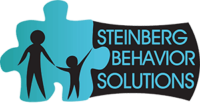As of 2018 1 in 59 children have autism. This is double the amount compared to 2004 when 1 in 125 children were similarly diagnosed. Some would argue that these numbers reflect a rise in autism among young people. But the more accepted explanation is that the definition of autism has expanded enormously. As such, more children exhibiting different social or emotional deficits now find themselves under the autistic umbrella.
What is Autism?
Autism spectrum disorders (ASDs) are characterized by difficulties with social interactions, communication challenges, and the tendency to engage in repetitive behaviors. ASD is called a spectrum disorder because within the three areas of concern, individuals show an incredibly wide range (or spectrum) of severity.
Diagnosing autism prior to 2013
From 1994 to May 2013, the autism spectrum was divided into five separate diagnoses according to the authority in medical diagnoses: the Diagnostic and Statistical Manual of Mental Disorders version 4 (DSM-4). They included Asperger syndrome, Pervasive Developmental Disorder Not Otherwise Specified (PDD-NOS), Autistic Disorder, Childhood Disintegrative Syndrome, and Rett Syndrome.
Aside from the fact that each diagnoses was difficult to define, practitioners often used different ones for the same patient. In an effort to clarify their diagnoses, practitioners used terms such as ‘severe autism’, ‘mild autism’, and ‘high functioning autism’. Unfortunately these terms, aren’t true diagnoses at all; they’re just descriptions and make things more confusing. And while they were intended to help parents and practitioners better understand a child’s status on the autism spectrum, the distinguishing characteristics between ‘mild’ or ‘severe’ autism became purely subjective.
How is a diagnosis made today?
As of 2013 medical professionals use the definition in the Diagnostic and Statistical Manual of Mental Disorders version 5 (DSM-5) to identify autism. To be diagnosed with ASD, a child must display a persistent set of deficits in social communication, and interaction across a variety of contexts. The second determining factor is exhibiting restricted, and repetitive, patterns of behavior, interests, or activities.
Additionally, the child must have a history of these symptoms in the early developmental period. They must cause significant impairment in social, occupational, or other areas of functioning.
Symptoms of Autism Spectrum Disorder
While each individual with autism is very unique in how these areas of concern manifest, many children exhibit some of the same key symptoms that traditionally have been used to diagnose ASD. He or she may have difficulty making or sustaining eye contact with another person. They may be unable to point to objects that interest them or not look at an object someone else is pointing to. ASD children, often, have difficulty with change in their routine, expressing their needs, repeating words or phrases, and being unaware of the people around them.
Some children with autism also have cognitive or intellectual delays. However others may not have any intellectual impairment and may even be considered intellectually gifted. Some children and adults need a lot of support to get through every day and some may need little to no support. Along with the new diagnostic criteria in the DSM-5, doctors will now also give a child a level of severity ranging from 1 (needing least amount of support) to 3 (needing the most amount of support).
How to learn more
If you have concerns about your child’s development living in Chicago, the first person to speak to is your local Chicago pediatrician. They will probably administer an autism screening. A screening cannot diagnose your child with autism, but it can give important information that may lead your pediatrician to suggest a full neurodevelopmental evaluation. Unfortunately there is no medical test like a blood test that can tell you if your child has autism. Instead doctors will ask you questions about your child’s development and symptoms, observe and ask them questions as well. While some children are diagnosed with autism as early as 18 months, others (particularly those with a more mild presentation of autism symptoms) aren’t diagnosed until they are in preschool. If you are concerned at all about your child displaying symptoms that may be related to ASD you should speak with someone as soon as possible.
Keep in mind while some autism-related terms are descriptive, as a parent they’re not always terribly helpful; for every individual on the spectrum is unique. Even if you think you know what a diagnostic term means, don’t let that limit you or your child. It’s crucial to go beyond the diagnoses and look at a particular individual’s strengths and challenges.
